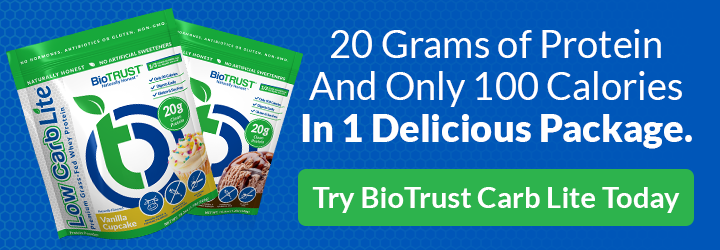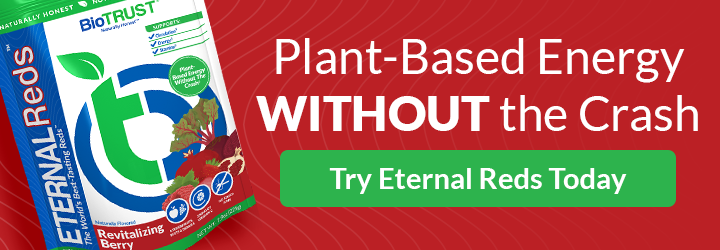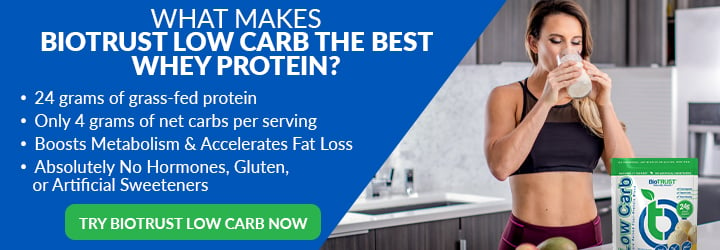Should You Take Pre-Workout Supplements? Here’s the Truth

Whether in powder form, pills, drinks, or food, pre-workout supplements are common in the fitness community. But, just because everybody else is doing it doesn’t mean that you should (or shouldn’t) too. Take a look at pre-workout supplements, the pros and cons, and then decide for yourself what will work for you, what won’t work for you, and if it’s worth it.
What are Pre-Workout Supplements?
A pre-workout supplement is simply something you consume prior to your exercise session in hopes of a better, more fruitful workout. Most provide an additional source of energy, often electrolytes, as well as other helpful nutrients designed to assist you in getting through those tough workouts. 1
Pre-workout supplements can encompass many things, but usually they take the form of a powder that you mix with water, a pre-mixed drink, a gel in a pouch, in pill form, or even as food.
If you’ve been dragging yourself through your workouts or you feel like you’re drained part way through, you might want to explore pre-workout supplements. They could provide the boost you’re looking for.
Benefits of Pre-Workout Supplements
As mentioned, the main function of pre-workout supplements is to help you get a better workout with plenty of energy and strength throughout. Most are designed to help provide a burst of power so you can lift more, for longer periods of time. They may also help you go longer and harder during your cardiovascular sessions.
Some pre-workout supplements also offer additional nutrients that can help preserve muscle tissue as you do resistance training. These are especially good if you’re dieting and your caloric intake is down so you lack energy and strength. They can keep fatigue at bay and let you feel energized and upbeat when you otherwise might not.
Dangers of Pre-Workout Supplements
Besides the fact that a lineup of pre-workout supplements can get very expensive, there might be some other downsides to consider as well. One drawback is that they can be easy to abuse. Once you get into the habit of feeling that kick as you start your workout, you might feel like you can’t do without. If it becomes a crutch for you, you might want to take a break or scale back on your usage (maybe try using different types of pre-workouts, including those that are low stimulant or stimulant-free).
And, don’t overdo it on the pre-workouts—it can be hard on your body if you take in too much caffeine or other stimulants, especially if used too fast or too often. Some folks also experience side effects like rashes, nausea, jitters, sleep disruption, and heart palpitations or high blood pressure. If you have any of these happen to you, discontinue use and see your health-care practitioner.
Types of Pre-Workout Supplements You Can Use
When it comes to pre-workout supplements, there are a number of choices at your disposal. From basic coffee to complex, pre-mixed concoctions, you can fortify your workouts a lot of different ways. Here are some of the most popular:
1. Creatine
One of the safest and most well-studied supplements around (with hundreds of studies on its safety and effectiveness), creatine may help your body produce more energy and increase your ability to perform. 2, 3 And, because it brings water into the muscles, it helps you get a great pump while working out. You may feel stronger while using creatine, which allows you to lift more, potentially helping you build muscle faster than without it.
Despite claims to the contrary, research has found athletes who supplemented with creatine created fewer cases of dehydration, cramps, or injuries than athletes who didn’t use the supplement. 4 The biggest side effect appears to be diarrhea when excessive amounts are consumed at one time (10 grams, which is twice the recommended amount). 5 There is no evidence that creatine leads to digestive complaints when used as recommended, though. 4
2. Nitric Oxide
Known as a vasodilator, nitric oxide helps relax your blood vessels, opening them up for increased blood flow. Nitric oxide supplements include the amino acids L-citrulline and L-arginine. This allows for better nutrients to the muscles, enhanced physical performance, improved exercise tolerance, lower overall blood pressure, and may potentially promote healing. 6, 7
Side effects tend to be rare and mild, but nitric oxide may lead to diarrhea, stomach pain or nausea, bloating, heartburn, and headaches. It should, however, be avoided by people with certain health conditions like cirrhosis, low blood pressure, a history of heart attack, herpes, or some rare genetic conditions. 8
3. Beta-Alanine
You’ll often see this included in pre-workout supplements as it may help increase your athletic performance while at the same time decreasing muscle fatigue. Together with histidine, beta-alanine is used to produce carnosine in the body. This amino acid is then stored in and used by skeletal muscles to help buffer lactic acid to help improve exercise performance. 9 It may also help improve body composition by helping increase muscle mass and may help improve the quality and function of muscles, especially as we age. 10 – 12
In addition to helping promote athletic performance and strength, some animal research also suggests this amino acid may support immunity and have both antiaging and antioxidant properties. 13
The biggest “side effect” of beta-alanine supplements is what’s known as “paraesthesia,” which just means it makes the skin tingle, especially on the face, neck, and hands. Some people really like the harmless sensation, while others find it uncomfortable. However, the sensation can often be reduced or avoided altogether by decreasing the amount of beta-alanine consumed at one time. 14
4. Eternal Reds
If you’re looking for an all-natural plant-based supplement that provides you with healthy energy, without the crash you might get from sugary pre-workout drinks and smoothies, Eternal Reds may be just what you’re looking for.
What ingredients are in Eternal Reds that make it so special? It’s essentially a superfood in powder form containing blueberries, beets, apples, and pomegranates as well as cranberries, grapes, blackberries, bilberries, strawberries, and raspberries. These polyphenol-packed superfoods are naturally sweetened and provide you with increased energy and blood flow, without any stimulants.
5. Caffeine
Want to boost workout performance? One of the easiest, least expensive options is a plain old cup of coffee (~75 to 154 mg per cup) or tea (~65 – 130 mg per cup). Caffeine has been shown to help boost your energy levels and provide mental clarity. It also raises your body temperature which helps you burn more body fat.
And, because you’re burning body fat for fuel, it spares your hard-earned muscle tissue. Using caffeine can also release endorphins, leaving you feeling upbeat and energized. Finally, coffee has even been found to help reduce the risk of early death.
Caffeine—even when it’s just in coffee or tea—isn’t right for everyone. For some people, caffeine makes them feel jittery, anxious, nervous, and uncomfortable. Heavy coffee drinking has drawbacks, such as insomnia, digestive issues, headaches, and rapid heart rate, so limit consumption to no more than 200 mg per day from all sources.
6. BCAAs
If you can’t get in a healthy meal somewhere close to your workout, using BCAAs (branched chain amino acids: leucine, isoleucine, and valine) could be just what you need to boost your workout power. BCAAs are part of the building blocks your body needs to replenish the muscle you break down during resistance training.
BCAAs have been shown in research to help promote muscle protein synthesis, which is essential for muscle growth after weight training. 15 They may also help reduce muscle soreness, 16 reduce fatigue during exercise, 17 and prevent muscle breakdown.
7. Low Carb Protein
While using a protein powder supplement may not be your typical pre-workout supplement, using protein around your workouts (both pre- and post-workout) is a smart thing to do. Why? Because protein is needed by your body to help it build the lean muscle you’re working toward. It helps you improve your strength as well as recover from the tough workouts you put yourself through.
There are a lot of choices when it comes to protein powders. So, why choose BioTrust Low Carb or Low Carb Lite? One word: quality. These protein powders are made with protein from grass-fed, pasture-raised cows and then cold processed to ensure they’re undenatured. They’re also made with gut-friendly prebiotics and enzymes so they’re stomach friendly and easily absorbed. Finally, they’re non-GMO, and free from growth hormones, antibiotics, gluten, soy, artificial sweeteners, flavors, colors, and preservatives.
Regardless of whether you do or don’t decide to go with pre-workout supplements, always be sure to drink plenty of water. Water will keep you hydrated, replacing fluids lost through sweat, and amazingly, can boost your energy levels as well. Or, try different types of pre-workout supplements, see how you fare, and experiment until you find something you like.








